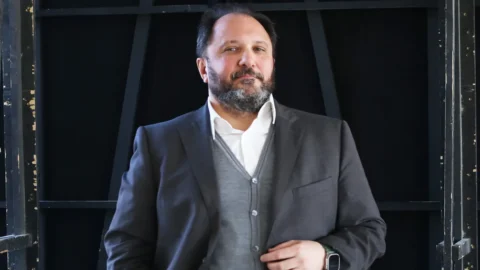“We have to face a very serious emergency but if we continue to pursue the markets frantically, we risk adding confusion to confusion until we reach real chaos. We are facing an irresponsible government which has prepared absolutely nothing to rationally face the crisis and also yesterday evening's intervention by President Napolitano risks pushing for a further bundle of measures which, however, in the end, will not be able to give the desired results .” Giorgio La Malfa over a year ago left the PDL in controversy with the paralysis of the government on the reform front, to land in the third pole, of which he is a parliamentarian. He confirms his criticism of Tremonti who recently declared that he has never been optimistic and yet "behaved like an optimist" so much so that in these three years he has done nothing to be able to face a possible crisis, and when it did caught completely unprepared.
FIRST online – But perhaps the origin and central point of Italy's weakness is not clear either to the Government or perhaps to part of the opposition.
George La Malfa – The delicacy of our situation lies not so much in the annual deficit or low growth, but primarily in the enormous amount of public debt accumulated over the years and which we have to refinance on markets around the world. When operators began to have doubts about our country's ability to repay its debts, the crisis suddenly exploded. The problem lies in the fact that the Government is trying to tackle this problem only from the point of view of containing the annual deficit, without any initiative to drastically cut the amount of debt. And these continuous manoeuvres, apart from the fact that they also have many flaws , lead the economy into depression, i.e. they cause a reduction or at least a stagnation of the GDP. This in turn worsens the debt/GDP ratio and therefore makes us enter a spiral whereby new maneuvers are always required which in turn accentuate the depression of the economy. And therefore the confidence of the markets is not regained along this path and the Italian economy is destroyed.
FIRST online – So where should we start from to try to get out of the crisis?
George La Malfa – In the first place, it is necessary to try to significantly reduce the debt through an immediate plan for the sale of public assets, both those of the State and those of local authorities. Both companies controlled by the Treasury (Enel, Eni, Bancoposta) and those controlled by Regions and Municipalities must be put on the market promptly, as well as a large part of the real estate assets that are often not used or are used badly. Not only would this allow the debt/GDP ratio to be rapidly brought below one hundred percent, but it would also have a streamlining and moralizing effect on political life because it would take away from the hands of both Roman and local politicians power centers that are often used only in patronage manner.
FIRST online – Many think that this debt reduction operation could be carried out with an asset on the richest part of the Italian population which could yield 200 or 300 billion euros, as well as having an equalizing effect between the various social categories of the sacrifices that are required to remedy the situation.
George La Malfa– I don't think a property company can give such a figure. This has never happened in the past with us or in any other country. Let's be clear, a property with moderate rates on real estate would be a useful and appropriate completion to the sale of public assets and would allow, possibly together with the VAT increase, to lighten the tax burden on workers and businesses in order to restore some competitiveness to our economy. As regards the assets on movable wealth (cash and securities), apart from the difficulty of finding all the holders, if it includes government bonds, it would look a lot like an undeclared default and would have no positive effects on the restoration of market confidence which we need a lot.
FIRST online – But in these hours an attempt is being made to strengthen the maneuver with interventions on pensions and making other cuts as proposed by the third pole. It would be enough?
George La Malfa – The amendments of the Third Pole are correct but it is a maneuver largely replacing that of the Government. At the moment, I am very much afraid that the Government will desperately add other not well-studied measures on pensions or on VAT because this would have a further depressive effect on the GDP and therefore would push away an effective recovery of the country. I repeat that we need to start with debt and therefore with a program for the broad and rapid disposal of public assets.
FIRST online – But even if the debt was reduced, wouldn't a new governance be necessary to change the mechanisms of public spending, so as to guarantee that the debt does not recur in a short time?
George La Malfa – Of course I have always said that federalism, by multiplying the spending centers, would have led to a greater public deficit. We need to review the entire system and assign precise responsibilities to each expense centre.
FIRST online – But can all this be done by a government that has been caught unprepared and that for various reasons has lost much of its credibility?
George La Malfa – We have to navigate in very stormy waters. The euro has proved to be a structurally fragile construction and certainly not suitable for dealing with a serious global crisis such as the current one. I am struck that even Delors, one of the fathers of the euro, has expressed doubts about the fate of the European currency. This does not mean that we do not have to face our underlying problems. The first is that of the mass of public debt that we have been dragging around for years without doing anything. And it is clear that this government is no longer in a position to do so. Both Tremonti and Berlusconi no longer have political credibility. The League is in crisis and perhaps no longer in harmony with the north of the country. Alfano does not seem able to face such a dramatic situation with determination. But how can a new government be created which should see the Pd, the Third Pole and at least one more responsible part of the Pdl together? Are the Catholics who are in the PDL capable of assuming the responsibility of favoring an evolution of the political framework, if only to face the emergency and save Italy from a real economic and social catastrophe?





